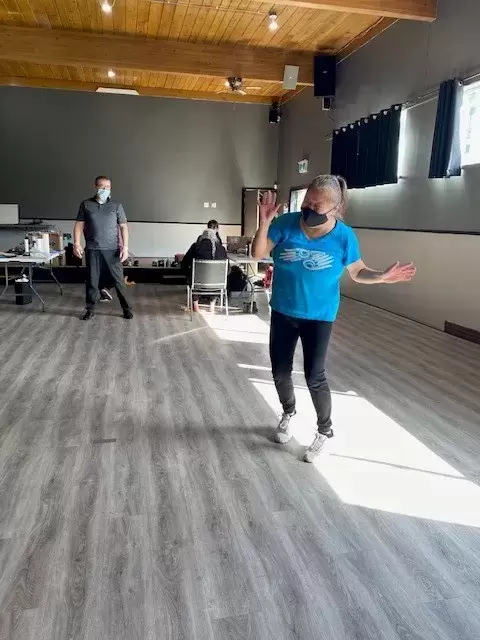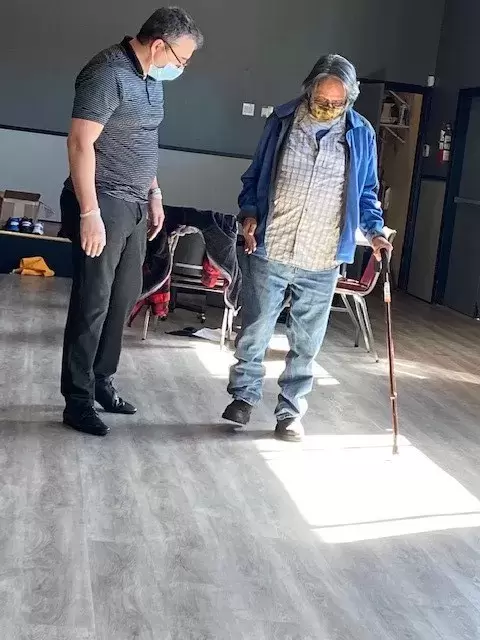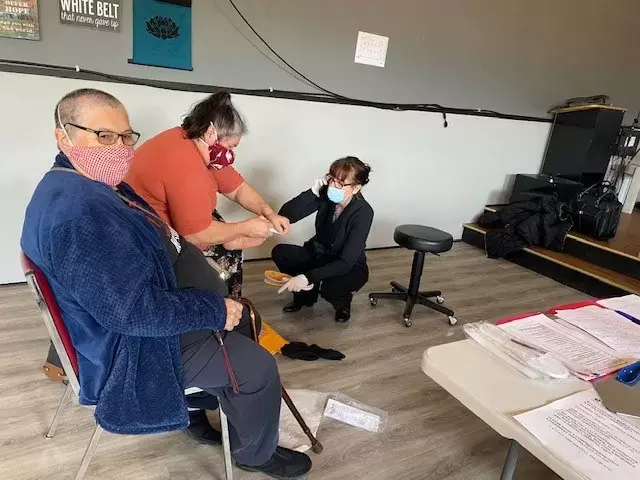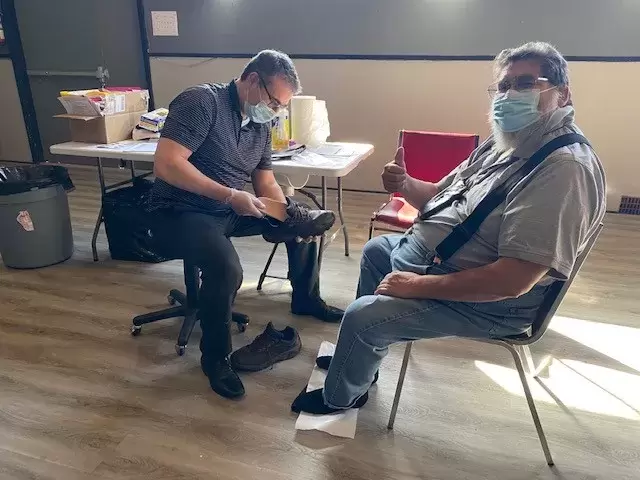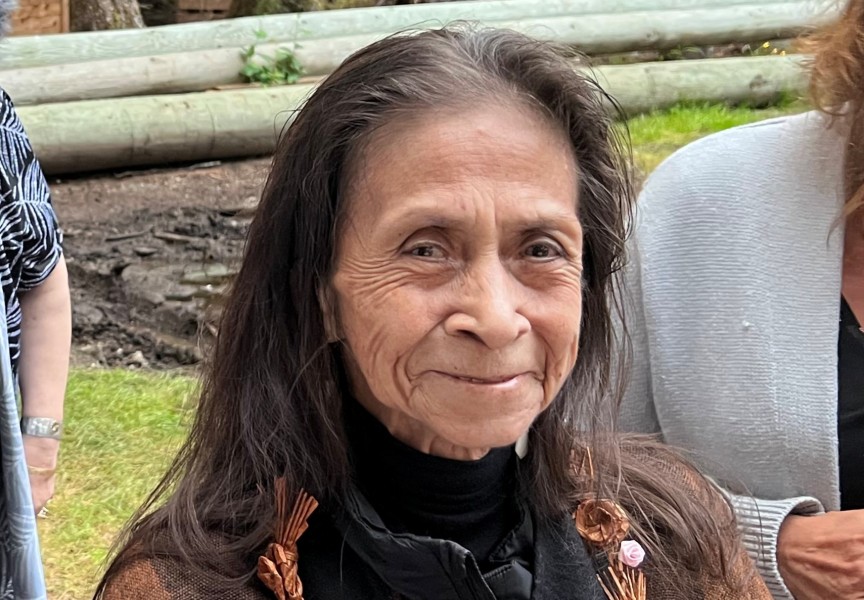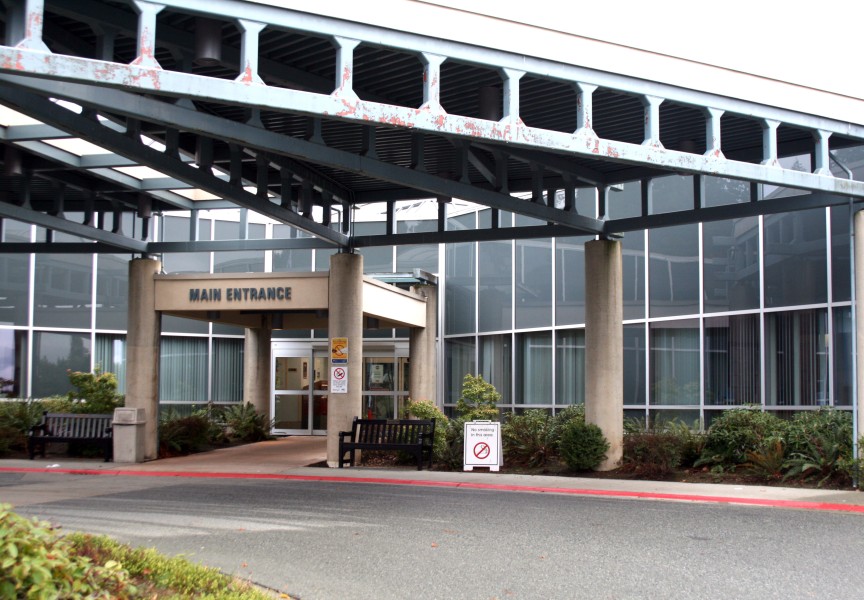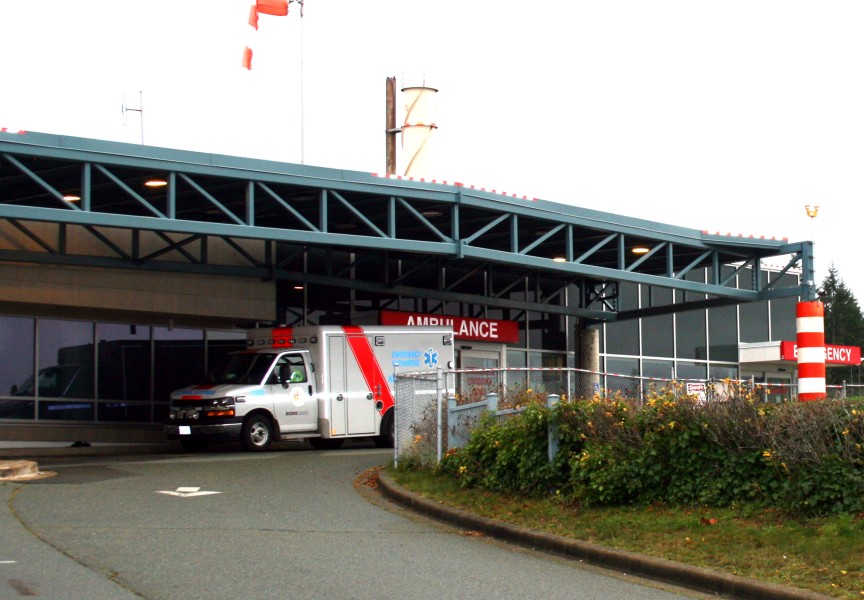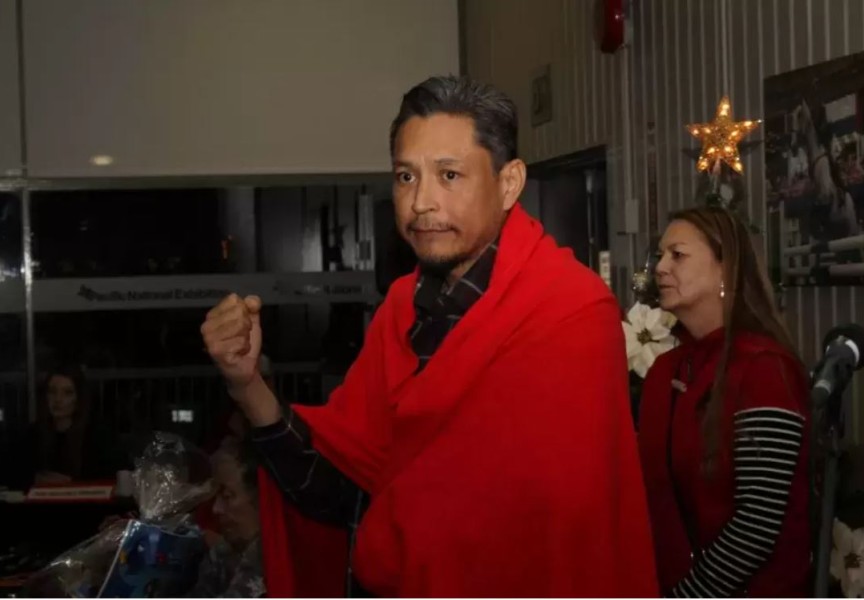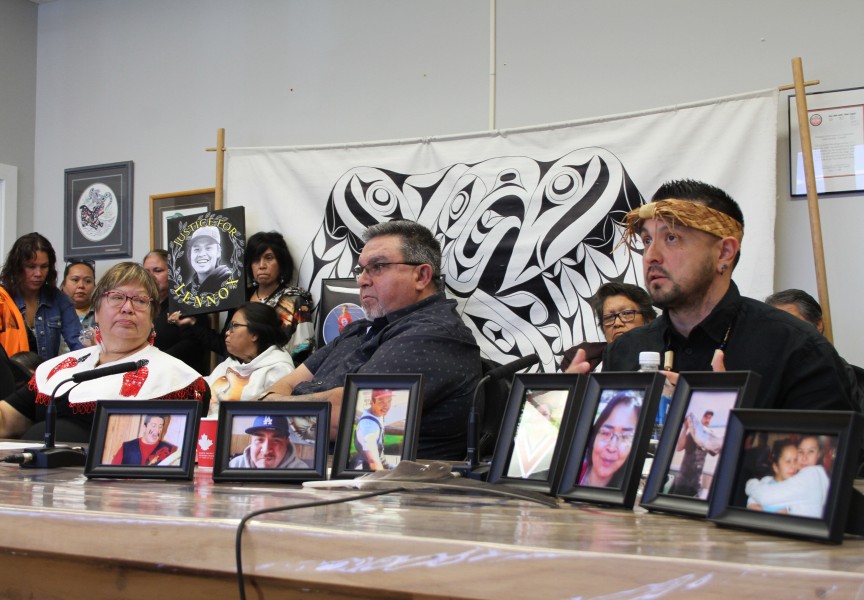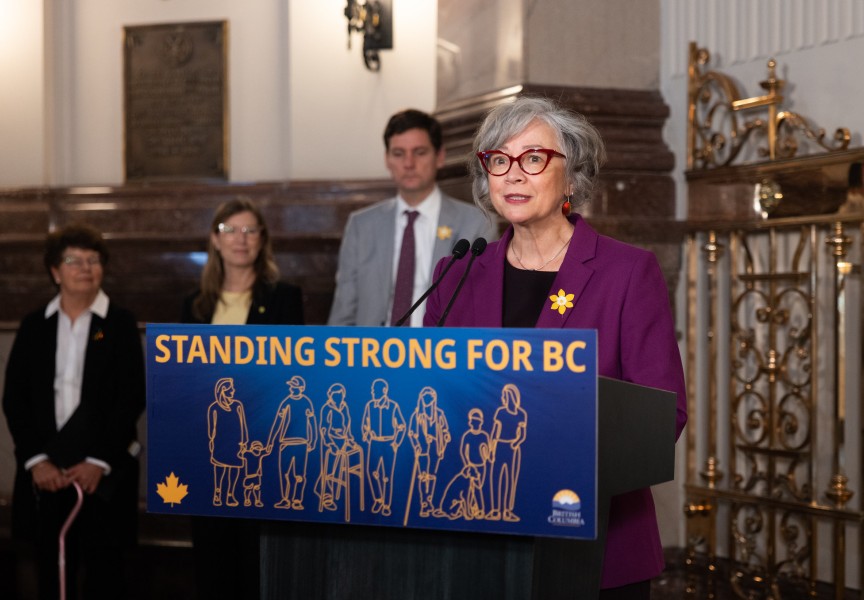After more than a year of social isolation due to the pandemic, diabetics and other foot pain sufferers are finding relief in the form of mobile foot clinics.
Prior to the pandemic, the NTC hosted annual health fairs where foot care professionals were brought in to see people. But gatherings like health fairs have been prohibited by provincial public health orders since March 2020.
According to NTC Health Promotion Worker Matilda Atleo, there are few professional pedorthists near Port Alberni. With a large number of people in the Nuu-chah-nulth communities needing the services of a pedorthist, the Nuu-chah-nulth Tribal Council nursing department brought foot professionals in from the Lower Mainland or Nanaimo.
A pedorthist is a health care professional that examines, assesses and treats the causes of foot pain.
Katia Langton of OceanWalk Pedorthic Clinic is a certified pedorthist. She has been to Port Alberni on three occasions providing mobile foot clinics to First Nations communities.
“The goal of the mobile foot clinic is to assess, risk categorize and treat patients with painful foot conditions or diabetes (for their annual assessment) in order to keep them active, walking and mobile,” said Langton in an email.
According to Diabetes Canada, Indigenous peoples are among the highest-risk populations for Type 2 diabetes and related complications. A common complication is diabetic neuropathy, or nerve damage, often in the legs and feet caused by long-term high blood sugar levels. This causes the feet to go numb, opening the door to infections from unnoticed foot injuries. When infections get serious, it can lead to amputation of parts of the foot, or sometimes the entire foot and maybe even the leg.
Type 2 diabetes can be treated with diet and exercise. But if a painful foot condition exists, the patient may not be able to get the activity they need.
The mobile foot clinics aim to help keep them active, walking and mobile.
“We provide comprehensive foot exams for diabetic patients and patients with painful foot conditions to protect the diabetic foot and off-load any painful conditions,” said Langton.
She went on to say that pre-diabetic and diabetic patients should be assessed annually to watch for neuropathy. Catching neuropathy early means protection for patients from ulcers leading to amputations.
Besides being a certified pedorthist, Langton is also certified in Lower Extremity Amputation Prevention and Comprehensive Treatment and Management of the Neuropathic Foot. She has training in assessing and treating onychomycosis, or fungal nail infection, which can increase the risk of complications in neuropathic patients. Langton is trained to differentiate patients with irreversible diabetic neuropathy from patients with reversible lumbar spinal stenosis, also known as osteoarthritis or degeneration in the lower back.
For this reason, the mobile foot clinics are open non-diabetics.
“They are open to all community members in Port Alberni and in neighbouring nations,” said Atleo. “If you have knee pain or foot pain, this is where you can go.”
Atleo said that there have been three clinics held in Port Alberni. The first two were held at the Alberni Athletic Hall in October and November 2020 where just over 50 people were assessed. A further 20 people were assessed at a March 2021 clinic, and about half of the clients were there to be fitted with prescribed orthotic devices or shoes.
Atleo said it was NTC Nurse Navigator Lesley Cerny who saw the need to bring the foot care professionals to the people. Atleo helped coordinate by setting up meeting spaces and advertising on their Nuu-chah-nulth Community Wellness Facebook page.
According to Atleo, few Indigenous people know that they have health benefit coverage for their foot care appointments with a professional. In addition, they can be eligible for patient travel from their First Nation to get to their appointment.
At a typical foot care appointment, the patient will have their feet examined. They may go through a gait assessment where the pedorthist observes foot and leg movements.
Atleo said that some of the people who went through the recent foot clinics qualified for special shoes. These shoes, she said, are like athletic footwear and can cost $600 to $700 a pair. The cost of the shoes is covered by NIHB (non-insured health benefits).
Langton says that both custom gait orthoses and diabetic devices are fully covered every two years under First Nations Health Authority.
According to Atleo, Nuu-chah-nulth woman Pam Watts suffered for years with foot pain. In late March she received her new orthopedic shoes.
“She was so happy, she just loved it,” Atleo said.
Atleo and Cerny will soon be organizing similar clinics in Tofino, Ahousaht and Campbell River.
Future clinics will be advertised on the NTC Community Wellness Facebook page. In addition, known Nuu-chah-nulth diabetics registered with the NTC nursing department will be contacted about the upcoming clinics.
For more information, call Matilda at the Nuu-chah-nulth Tribal Council at 1-250-724-5757.

